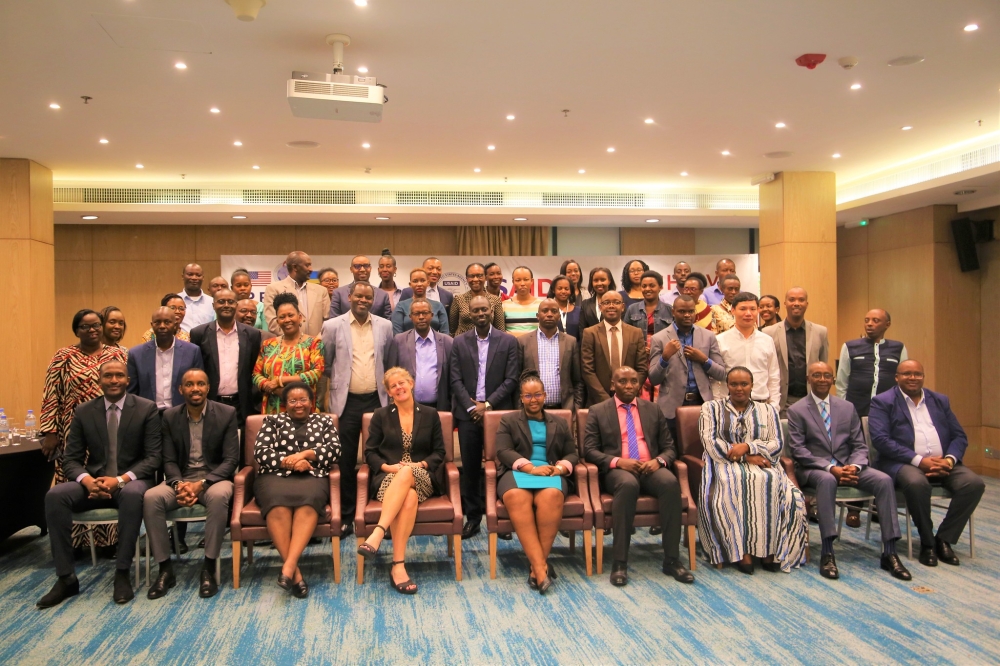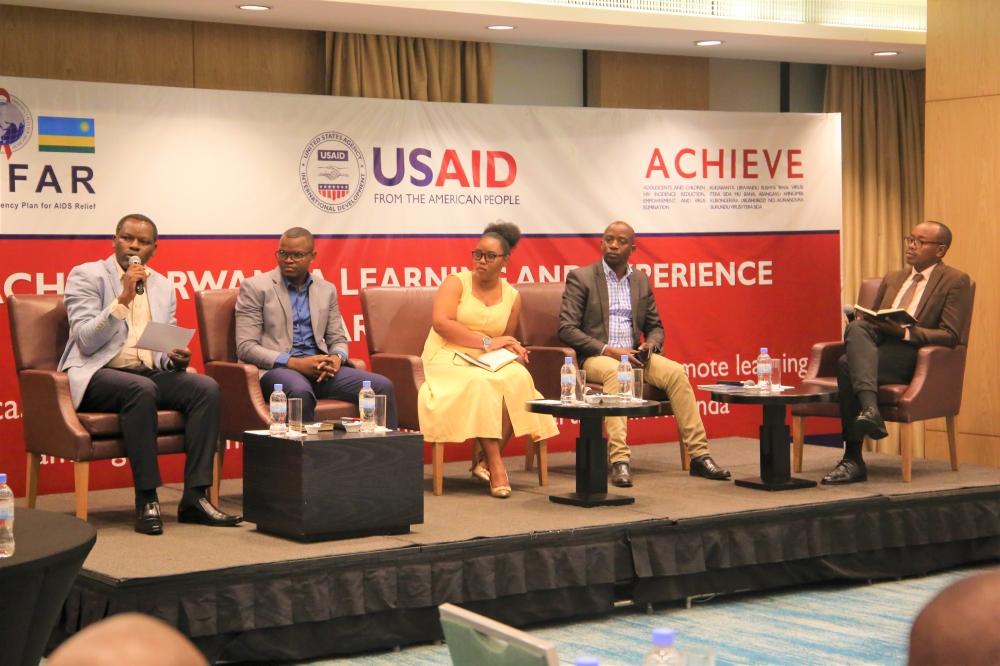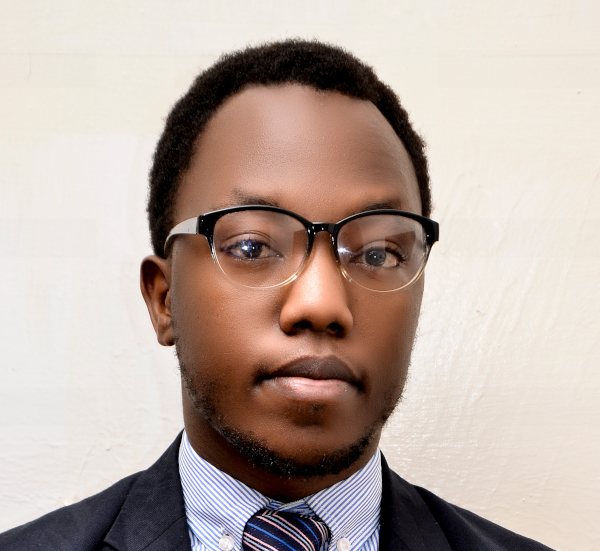

Launched in 2020, the PEPFAR/USAID-funded Adolescent and Children, HIV Incidence Reduction, Empowerment, and Virus Elimination (ACHIEVE) project aimed to reduce vulnerability and HIV incidence among Orphans and Vulnerable Children (OVC), Adolescent Girls and Young Women (AGYW), contributing to HIV epidemic control in Rwanda.
Over the past two years, the project has served 67,219 beneficiaries in Kicukiro, Nyarugenge, Kayonza, and Huye districts, with the support of 1,522 volunteers. 53,806 OVC and AGYW received HIV testing services and HIV risk assessments and 31,492 AGYW received mentorship and social asset building through 153 safe spaces facilitated by 191 mentors to reduce HIV and vulnerability to sexual violence.
Led by Pact, a global project, ACHIEVE also educated 14,716 girls and boys on sexual reproductive health and rights, HIV and GBV prevention, and life skills through in-school and out-of-school youth clubs and created and supported 1,038 savings groups reaching a total of 24,016 members, who saved a total of Rwf146,907,849, which was invested in income generating activities.


Moreover, the project reached 915 boys of 10-14 with the Coaching Boys Into Men (CBIM) intervention, focusing on building healthy and respectful behaviours and promoting positive masculinity. The project also provided cash transfer/household grants to 4,126 households of OVC and AGYW to meet basic needs.
Speaking during the project’s learning and experience sharing event on September 28, Moise Mutabazi, ACHIEVE Country Project Director for Rwanda, said that the reason why they focused on reducing vulnerability and HIV is that the issues hinder development, declaring that there are people who are HIV positive and can’t access desired services to reduce vulnerability and HIV incidence, and others who are risking to die due to that.
"The project was initiated to raise awareness on HIV prevention and response so that they could access community and clinical services and other socio-economic services to improve their livelihood,” he said.
ACHIEVE, according to Mutabazi, is switching from direct service delivery to supporting five Civil Society Organisations (CSOs) with technical assistance and capacity development in line with service delivery for the next three years.
The new OVC and DREAMS projects will be working in 13 districts across the country, added Mutabazi.
Mireille Batamuliza, Permanent Secretary at the Ministry of Gender and Family Promotion, said the project became one of the answers to the problems that are in Rwandan families and aligned with the Ministry’s mandate of building a strong and safe family.
She declared that the project also built a family from the community level, taking care of girls and boys, including those who are HIV positive, reducing their vulnerability.
Its interventions, she continued, also helped youth, including teen mothers, to get information on how they could behave in their adolescence, and the impact can be seen in their families.
She added: "ACHIEVE has also helped orphans and vulnerable children, and that aligns with one of our responsibilities of protecting a child from any violence. That is something we are happy about because all the children that were helped have gained hope for tomorrow; are working, getting paid, and saving. Teen mothers are also hopeful that their children will live. We hope to see the impact even in their families.”
Safina, a former sex worker who lives in Gitega Sector, Nyarugenge District, was able to turn her life around after being referred for HIV testing at a health facility through ACHIEVE’s Determined, Resilient, Empowered, AIDS-free, Mentored and Safe (DREAMS) program.
DREAMS is a public-private partnership supported by the U.S. President's Emergency Plan for AIDS Relief (PEPFAR), which consists of a core package of evidence-based interventions that address the many overlapping vulnerabilities for AGYW.
Safina testified that she gained access to sexual and reproductive health services and was assigned a mentor who educated her further about the topic as well as gender-based violence (GBV) and HIV Prevention. She was also able to participate in training and mentorship sessions through safe spaces.
After being educated and tested for HIV, Safina was able to educate two sex partners about HIV testing and voluntarily made medical circumcision, resulting in them being referred to health facilities for these services.
"I learned much about GBV, life skills, testing for HIV on a regular basis, and family planning, which is allowing me to protect myself from being pregnant,” said Safina. "I was reminded of the good opportunities in life and starting all over again. I am no longer a female sex worker, and I am raising my daughter better than how I was raised.”
ACHIEVE is implemented in partnership with Jhpiego, Palladium, No Means No Worldwide, and Wi-Her through two local partners, YWCA and DUHAMIC-ADRI.
It also works with Réseau Rwandais des Personnes Vivant avec le VIH (RRP+) for clinical service integration at the community level.


